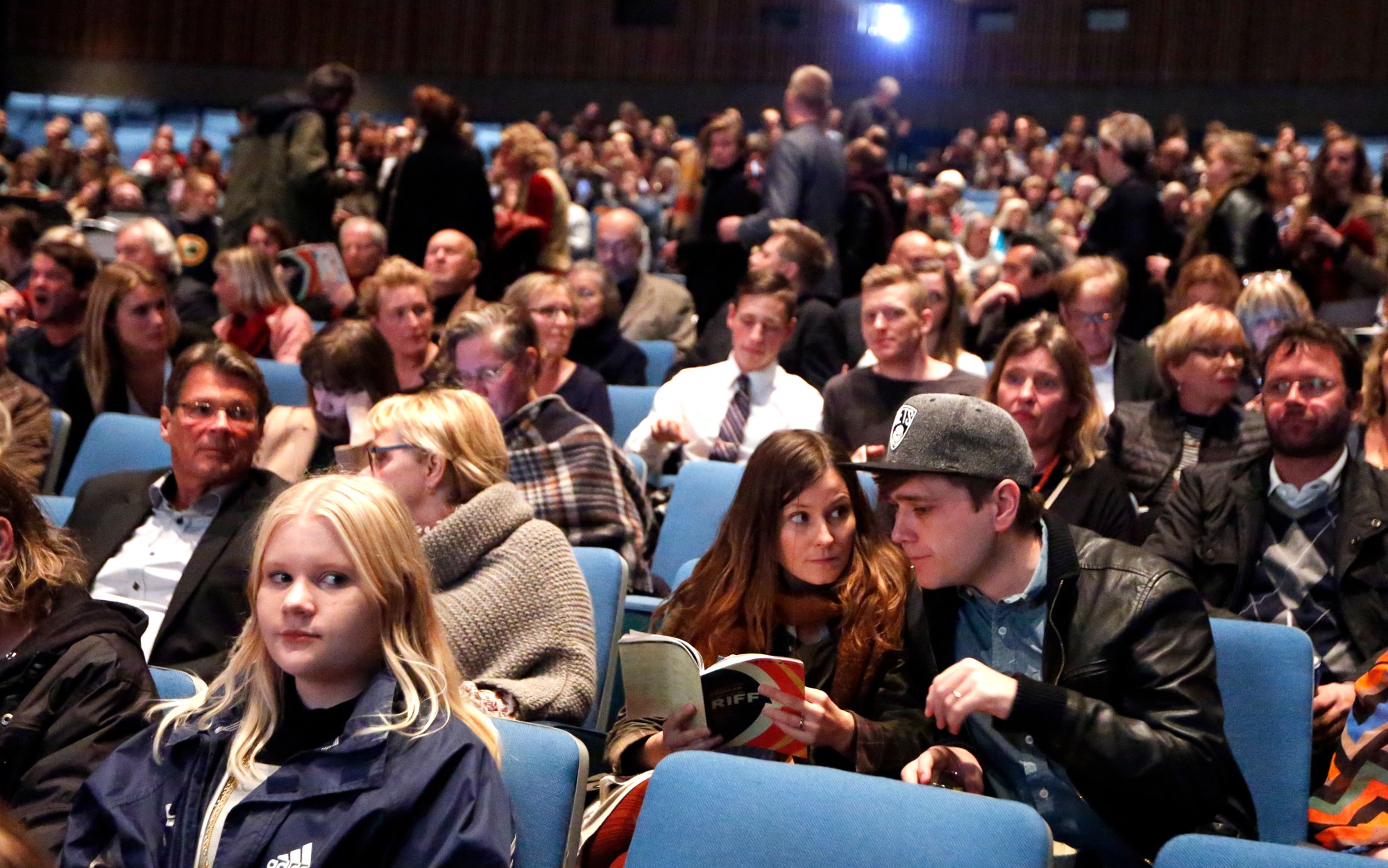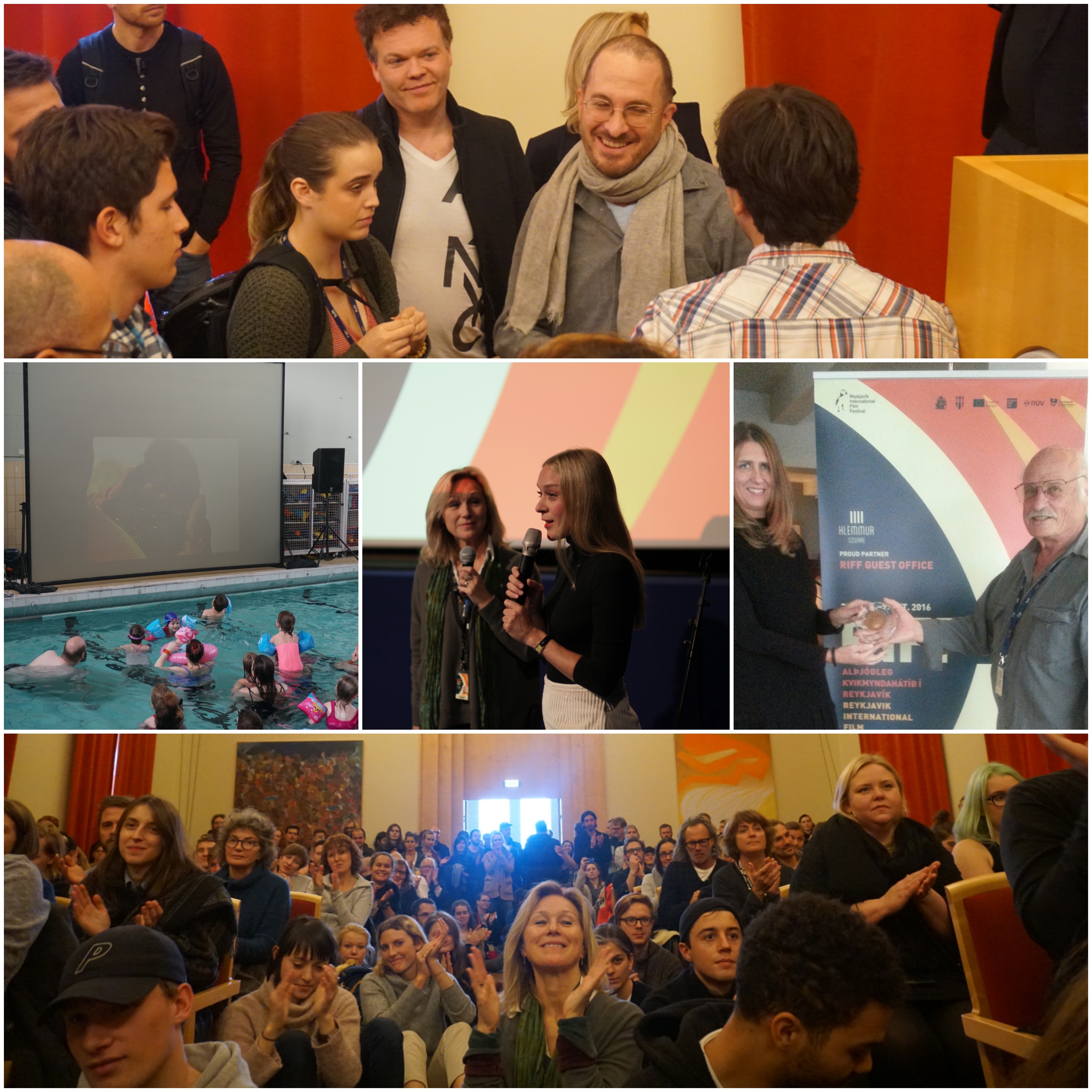
- Festivals
The Multicultural Charm of The Reykjavik Film Festival
The 13th edition of the Reykjavik International Film Festival (RIFF) just ended, and the Hollywood Foreign Press Association was there. Board member Yoram Kahana presented the HFPA's appreciation plaque to RIFF's founder and director Ms. Hrönn Marinósdóttir, who said: "My best wishes to the HFPA, thank you for coming to the festival. It was a pleasure to again have a representative from the HFPA here in Reykjavik for the 13th edition of our festival."
Reykjavik, Iceland's capital (and the northernmost capital in the world) is host to the eleven days long film festival, that emphasizes independent film making. It showcases Icelandic films, as well as movies from around the world – more than a hundred titles from some 40 countries. Each year honors another country with an extended program, and this year it was Poland's turn.
The competition part of the festival, New Visions, is limited to the first or second film of up-and-coming directors. Open Seas (out of competition) presents films by established international filmmakers, while Icelandic Panorama showcases the local filmmaking scene, amazingly prolific for a country of just 350,000 or so people. According to festival director Marinósdóttir the attendance of more than 30,000 admissions may not be big news elsewhere, but it represents some 10% of the population of Iceland.
The main screening venue is a shabby-chic triplex, complete with overstuffed couches, movie memorabilia and posters. But some screenings are held in unique locations: a swim-in cinema, a drive-in cinema, a living room cinema, a screening room set up in a cave and another with a collection of hot tubs.

Northern highlights- scenes from the 13th Reykjavik Film Festival. Top: Director Darren Aronofsky after his master class; middle row, from left: a swimming pool screening; Chloë Sevigny takes questions from the audience; festival director Hrönn Marinósdóttir receives the HFPA appreciation plaque; bottom: the audience at the main theater, Bio Paradis.
RIFF/Irene Moray, Donald Gislason; and HFPA/Yoram Kahana
The coastal city of Reykjavik is a perfect setting for a festival: compact, picturesque and friendly. And Iceland is becoming a frequent location for movies, TV and commercials, with its dramatic, other worldly landscapes, lava fields, geysers and water cascades. You have seen Iceland diverse international productions such as Game of Thrones, Interstellar, The Tree of Life and The Secret Life of Walter Mitty.
This year's awards were presented at the Reykjavik Whaling Museum. Special recognition awards went to directors Darren Aronofsky and Deepa Mehta, who have conducted master classes during the festival.
The grand prize is the Golden Puffin, named after the ubiquitous and charming national bird. The winners all serve as perfect examples of the international and multicultural nature of filmmaking today. The top prize went to a multinational production, Bezbog (Godless), from Bulgaria/Denmark/France, directed by Ralitza Petrova. The Islands and the Whales, best environmental film, was produced by The Faroe Islands and Scotland. The Audience Award went to Mr. Gaga, a documentary funded by Israel, Germany, Holland and Sweden, which also won at the recent SXSW.
The jury statement for the grand prize winner illustrated the dark tone of many of the festival's offerings, and filmmaking in general today:
"The Golden Puffin goes to a bleak but beautiful film with poignant acting and atmospheric cinematography. The film combines the downbeat suspense of a medicalized crime story with a subtle portrayal of the agony in a post-communist society"…
But the audience gave its stamp of approval to a more upbeat offering , by awarding the life story of Ohad Naharin , an Israeli contemporary dancer and one of the most prominent choreographers in the world, creator of the movement language Gaga, a breakthrough in the training and expression of dance.

